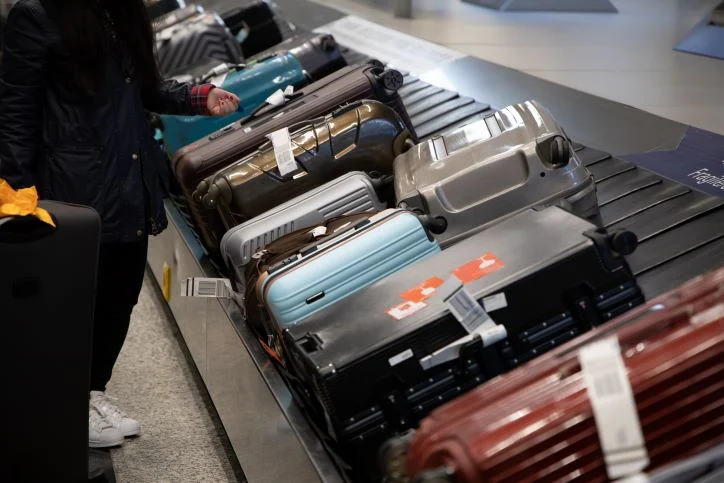Civil Aviation
IATA Unveils Global Plan to Reinvent the Future of Checked Baggage Handling

In an era where travelers expect speed, convenience, and transparency, the air travel experience is being redefined—and baggage handling is no exception.
Recognizing that a traveler’s journey doesn’t end at the gate but at baggage claim, the International Air Transport Association (IATA) has unveiled a bold and transformative vision: a 10-year Global Baggage Roadmap** designed to modernize how airlines and airports manage baggage.
Launched in collaboration with global airlines, airports, and industry partners, the roadmap outlines a clear path toward smarter, more efficient baggage operations. Its ultimate goal: to enhance both operational performance and customer satisfaction by embracing digital transformation and automation.
Baggage is important for travelers. When they check a bag, they expect it to arrive on time. And if it doesn’t, they want to know where it is,” said Monika Mejstrikova, IATA’s Director of Ground Operations. “The Global Baggage Roadmap will move us closer to the automated digital baggage services that travelers want.”
Recent IATA surveys reflect this demand:
81% of travelers want better baggage tracking
74% expect real-time updates on their mobile devices
67% are ready to switch to electronic baggage tags
The Roadmap: A Three-Pillar Strategy for Transformation
IATA’s roadmap is built around three core pillars that focus on connectivity, automation, and customer experience:
1. Baggage Information Exchange and Data Standardization
Modernizing the way baggage data is shared across the industry is central to this pillar. By phasing out outdated systems like teletype and moving to API-driven messaging standards, airlines and airports can significantly improve baggage reconciliation and reduce delays caused by data errors. This shift will also help cut down the USD 1 billion the industry currently spends annually on teletype communications.
2. Baggage Tracking and Automation
From electronic baggage tags to GPS-enabled tracking and advanced robotics, the roadmap calls for full visibility of baggage throughout a passenger’s journey. These technologies will empower travelers to track their bags in real time and reduce the stress and uncertainty of baggage handling during transfers and arrivals.
3. Streamlined Baggage Claim and Enhanced Fraud Protection
Improving the baggage claim process is not only about speed, but also about security and service quality. IATA aims to help airlines resolve baggage issues more efficiently while combating fraud through better verification and claims handling systems. This pillar supports a smoother post-travel experience and builds greater passenger trust.
A Collaborative Industry Effort
Mejstrikova emphasized that this initiative consolidates the progress of previous modernization efforts and offers a comprehensive roadmap for the future. “With the buy-in of all stakeholders,” she noted, “we are better placed than ever to improve traveler satisfaction by delivering the digital, automated, and customer-focused service that they get in many other sectors.”
The **Global Baggage Roadmap** is part of IATA’s broader strategy to modernize ground operations, enhance safety, and elevate the passenger experience across the aviation sector. IATA will support this transformation by providing practical guidance, offering training programs, and tracking the implementation of these initiatives over the coming decade.
As the aviation industry emerges from the challenges of recent years, the Global Baggage Roadmap signals a future where technology and customer needs go hand in hand—delivering smarter, faster, and more reliable baggage handling for travelers worldwide.

